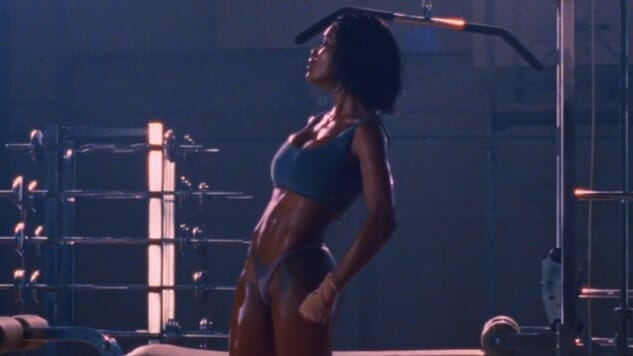Freeing the Female Form: On Teyana Taylor, Sara Benincasa and the Burkini Ban

It’s not about the burqa. It’s about coercion. Coercing a woman out of a burqa is as bad as coercing her into one.—Arundhati Roy
What can the female body do? What is it allowed to do? How is it defined, what is it expected to achieve, and how must it be presented while achieving these things? You cannot be a woman in 2016 and not face these questions, on some level. Even if you wanted absolute freedom from these questions, you’d be faced with rules, regulations and policing far too often to achieve such freedom.
On beaches in France, the latest rule is that the female body can exist, but it must not be covered up with a burkini (a portmanteau of burqa and bikini). A French court has just overturned the rule, but the question of how a woman’s body can present itself remains. Those who continue to defend the ban maintain that there is real danger in the burkini:
Mayors had previously cited a number of reasons for the bans. These included security after a string of terror attacks in the country and elsewhere in Europe; risk to public order; and France’s rules on secularism in public.
One fascinating aspect of this story is how “other” the ruling seemed, at first. Another country “over there,” policing what women wear! many feminist American women—myself included—likely thought, upon first hearing the story. It’s ridiculous and not something we’d stand for here.
Except here in America, girls are sent home from school every day for wearing “distracting” clothing. From our very forward-thinking and feminist America, it’s easy to be shocked by a South African school banning natural hairstyles, while forgetting that here in America, young black girls are also protesting administrations that won’t allow them to wear their natural hair, because it’s deemed a distraction. Years ago in a course on Islam, I remember learning about a Muslim woman who found it laughable that Western women saw the hijab as oppressive. American women are forced to wear veils too, she explained, describing one such veil as “the size six veil.” And isn’t it true, that part of our womanhood is defined by how our bodies look, and what size we wear? Isn’t it a problem in our culture too, when we do not fit into such veils? Just as France attempts to coerce women out of burkinis, aren’t our bodies subject to coercion of all sorts as well? Isn’t the question always, for some reason, what is the female body allowed to do, and how must it do these things?
Comedian and author Sara Benincasa answers all of these questions (and many, many more) in her brilliant response to an anonymous man’s question about why she gained “so much weight.” It’s an essay that must be in read in full, but one of the best parts is her description of all the things her body accomplished, without her weight becoming an issue.
-

-

-

-

-

-

-

-

-

-

-

-

-

-

-

-

-

-

-

-

-

-

-

-

-

-

-

-

-

-

-

-

-

-

-

-

-

-

-

-








































